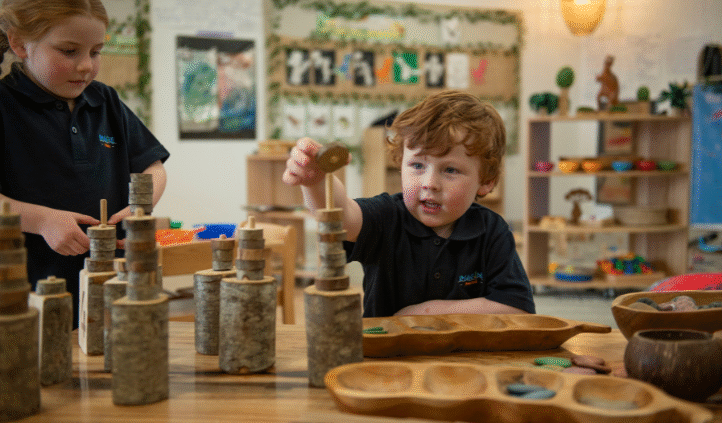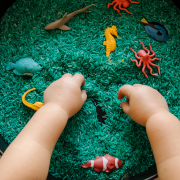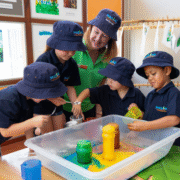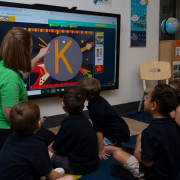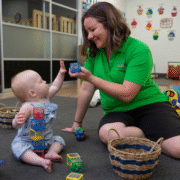Common Misconceptions About Childcare and Early Childhood Education
Early Childhood Education plays a vital role in a child’s development, yet many myths and misconceptions still surround it. From doubts about play-based learning to misunderstandings about structured programs, these myths can make it difficult for families to feel confident about choosing the right childcare or early learning environment. In this weeks blog, we are exploring some of the most common childcare and early childhood education misconceptions and the unpacking the truth behind them.
Myth 1: “Play isn’t real learning”
Many people think that when children play, they’re just having fun. In reality, play is a powerful learning tool. Through play, children develop critical social, emotional, and cognitive skills. Activities such as building with blocks, exploring sensory materials, or engaging in imaginative play help children learn problem-solving, communication, and cooperation, all while having fun.
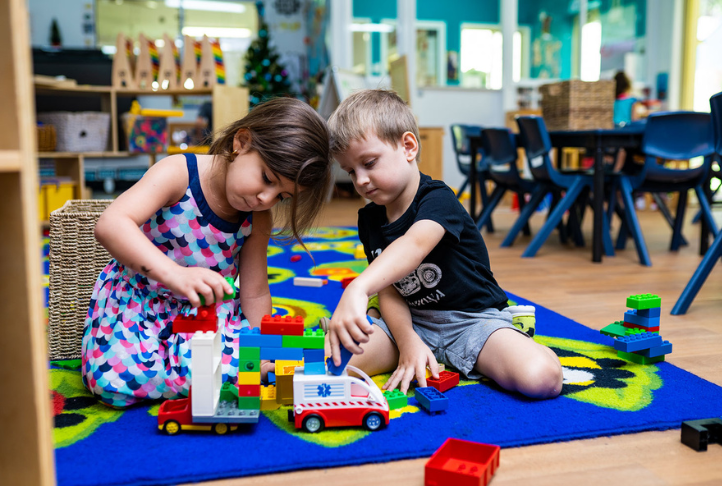
Myth 2: “Children are too young to benefit from structured programs”
Some parents worry that structured learning isn’t appropriate for young children. Modern early childhood programs, however, balance gentle structure with flexibility. Teaching and learning strategies such as the Abecedarian Approach Australia (3a) introduce learning through meaningful interactions and responsive routines, giving children the building blocks for literacy, numeracy, and social-emotional skills, all in ways that feel natural and engaging for their age.
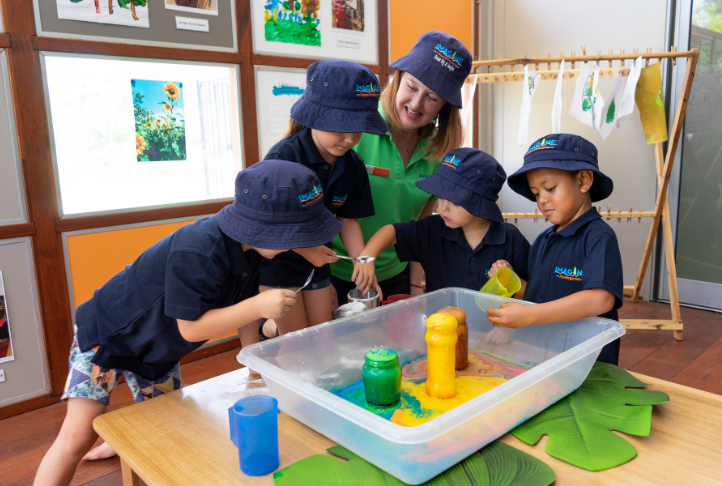
Myth 3: “‘Child-led learning’ means children do whatever they want”
Child-led learning is often misunderstood. It doesn’t mean children have no guidance. Instead, it’s about following the child’s interests while providing supportive frameworks and rich learning opportunities. Educators observe, scaffold, and introduce new ideas, helping children explore and develop skills at their own pace while maintaining clear learning goals.
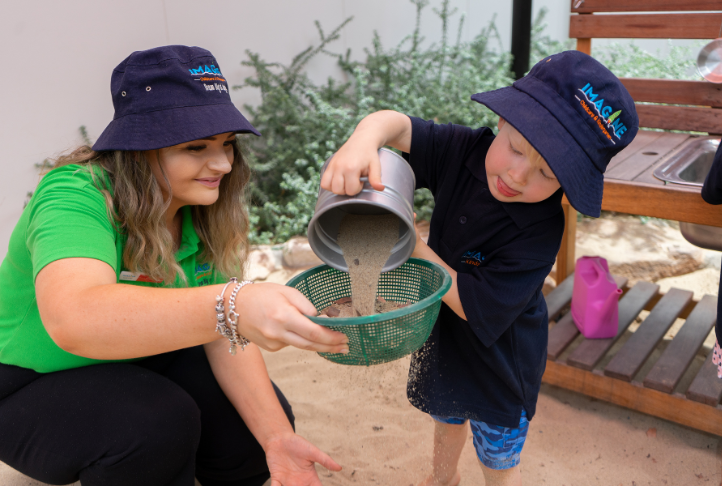
Myth 4: “Early Childhood Education is just babysitting”
High-quality childcare is so much more than supervision. It’s about creating an environment where children feel safe, nurtured, and stimulated. Through intentional teaching strategies, rich play experiences, and strong relationships, Early Childhood Educators actively foster a child’s curiosity, independence, and lifelong love of learning.
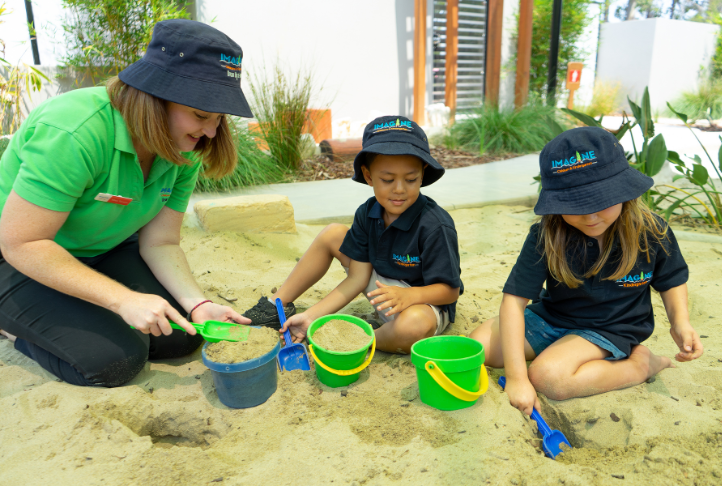
Myth 5: “Children don’t need social skills yet”
Social development starts early. Interacting with peers and adults in a supportive environment helps children learn empathy, turn-taking, conflict resolution, and self-regulation. Early Education settings provide guided social experiences that children can’t easily get on their own at home.
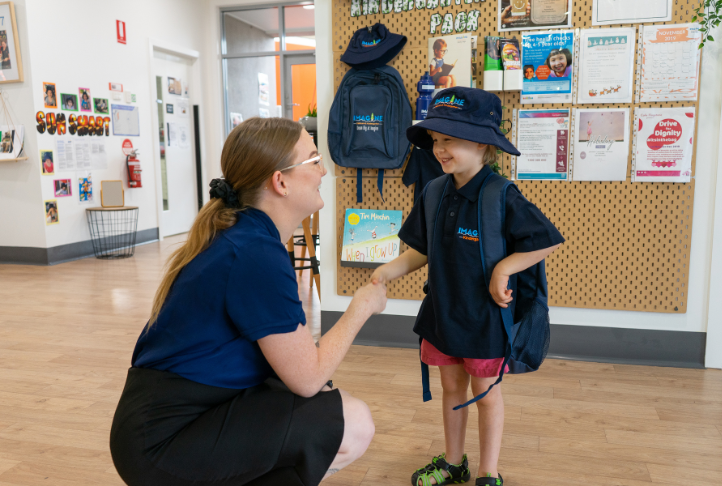
Modern Early Childhood Education is research-backed, intentional, and designed to support every child’s growth. Approaches such as the Abecedarian Approach and play-based learning ensure children are developing academically, socially, and emotionally, all in ways that feel natural, enjoyable, and meaningful.
Across our Imagine Childcare centres, we see these principles in action every day. Children serve their own snacks and lunches, help tidy up educational resources, and even prepare their beds for rest time, fostering independence, confidence, and responsibility all while learning through play.
If you’ve ever wondered about the value of Early Education, we invite you to explore our classrooms and see firsthand how children learn, grow, and thrive in a nurturing environment.
Discover how Early Childhood Education could be a great fit for your family by booking a tour of your nearest Imagine Childcare centre:
- Imagine Childcare and Kindergarten Andergrove
- Imagine Childcare and Kindergarten Bushland Beach
- Imagine Childcare and Kindergarten Southport
- Imagine Childcare and Kindergarten Collingwood Park
- Imagine Childcare and Kindergarten Fairfield Waters
- Imagine Childcare and Kindergarten Flagstone
- Imagine Childcare and Kindergarten Holmview
- Imagine Childcare and Kindergarten Jensen
- Imagine Childcare and Kindergarten Marsden
- Imagine Childcare and Kindergarten Maryborough
- Imagine Childcare and Kindergarten Nerang
- Imagine Childcare and Kindergarten Rochedale South
- Imagine Childcare and Kindergarten West End
- Imagine Childcare and Kindergarten Coburg
- Imagine Childcare and Kindergarten Cranbourne
- Imagine Childcare and Kindergarten Oakleigh South
- Imagine Childcare and Kindergarten Werribee
- Imagine Childcare and Kindergarten Blakeview
- Imagine Childcare and Kindergarten Smithfield
- Imagine Childcare and Preschool Ballina
- Imagine Childcare and Preschool Blueridge Park
- Imagine Childcare and Preschool Grafton
- Imagine Childcare and Preschool Nowra
- Imagine Childcare and Preschool Orange
- Imagine Childcare and Preschool Tamworth
Imagine Childcare and Kindergarten Melton, Imagine Childcare and Kindergarten Templestowe Lower, and Imagine Childcare and Kindergarten Everton Hills are opening in early 2026. Follow them on Facebook to receive regular updates on their progress.

